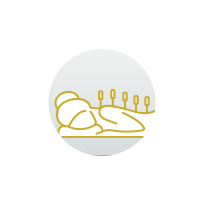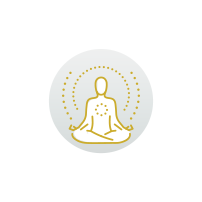
Unveiling the Potential of Acupuncture as a Complementary Therapy for Anxiety and Depression
Introduction: Anxiety and depression are prevalent mental health conditions that affect millions of people worldwide. While conventional treatments such as medication and therapy are widely used, there is growing interest in exploring complementary and alternative approaches. One such approach gaining recognition is acupuncture. This ancient practice rooted in Traditional Chinese Medicine has shown promise as a complementary therapy for managing symptoms of anxiety and depression. In this blog, we delve into the scientific research and evidence supporting the use of acupuncture in the context of anxiety and depression management.
Understanding Anxiety and Depression: Anxiety and depression are distinct but often overlapping mental health disorders. Anxiety is characterized by excessive worry, fear, and heightened arousal, while depression is characterized by persistent sadness, loss of interest, and a decreased ability to experience pleasure. Both conditions can significantly impact an individual’s overall well-being, functioning, and quality of life.
The Role of Acupuncture in Anxiety and Depression: Acupuncture is believed to modulate the body’s energy flow, known as Qi, by inserting thin, sterile needles into specific acupuncture points along meridians. In the context of anxiety and depression, acupuncture is thought to help restore the balance of Qi and promote overall harmony within the body. Several mechanisms contribute to the potential benefits of acupuncture in managing these mental health conditions:
-
Regulation of Neurotransmitters: Acupuncture has been shown to influence the release and activity of various neurotransmitters, including serotonin, dopamine, and gamma-aminobutyric acid (GABA). These neurotransmitters play crucial roles in regulating mood, emotions, and overall mental well-being.
-
Stress Reduction: Acupuncture has a calming effect on the nervous system, helping to reduce the body’s physiological response to stress. By stimulating specific acupuncture points, acupuncture can activate the parasympathetic nervous system, promoting relaxation and alleviating anxiety symptoms.
-
Regulation of the HPA Axis: The hypothalamic-pituitary-adrenal (HPA) axis plays a central role in the body’s stress response. Acupuncture has been found to modulate the HPA axis, helping to regulate cortisol levels and mitigate the impact of chronic stress on mental health.
Scientific Research on Acupuncture for Anxiety and Depression: Multiple research studies have investigated the effectiveness of acupuncture as a complementary therapy for anxiety and depression. While further research is needed, the existing evidence suggests promising outcomes:
-
A meta-analysis published in the Journal of Psychiatric Research analyzed 29 randomized controlled trials (RCTs) and found that acupuncture significantly reduced anxiety symptoms compared to control groups.
-
Another systematic review and meta-analysis published in the Journal of Affective Disorders examined 30 RCTs and concluded that acupuncture demonstrated beneficial effects in reducing symptoms of depression when compared to sham acupuncture or no treatment.
-
A study published in the Journal of Clinical Psychiatry examined the effects of acupuncture combined with selective serotonin reuptake inhibitors (SSRIs) for depression. The results indicated that the combination therapy was more effective than SSRIs alone in reducing depressive symptoms.
-
Additionally, acupuncture has shown potential in reducing anxiety and depressive symptoms in individuals with post-traumatic stress disorder (PTSD), as indicated by a study published in the Journal of Nervous and Mental Disease.
Considering Acupuncture as Complementary Therapy: While acupuncture shows promise as a complementary therapy for anxiety and depression, it is important to note that it should not replace conventional treatments. Instead, it can be utilized as part of a comprehensive treatment plan, in collaboration with healthcare professionals. Seeking the expertise of a licensed acupuncturist who specializes in mental health can ensure safe and effective treatment.
Conclusion: As the burden of anxiety and depression continues to rise, exploring complementary therapies becomes increasingly important. Acupuncture offers a potential avenue for managing symptoms of anxiety and depression, providing a holistic approach to mental well-being. While more research is needed, the existing evidence highlights the potential benefits of acupuncture in regulating neurotransmitters, reducing stress, and balancing the body’s energy. If you or someone you know is struggling with anxiety or depression, consider incorporating acupuncture into your comprehensive treatment plan to support your mental health journey.










